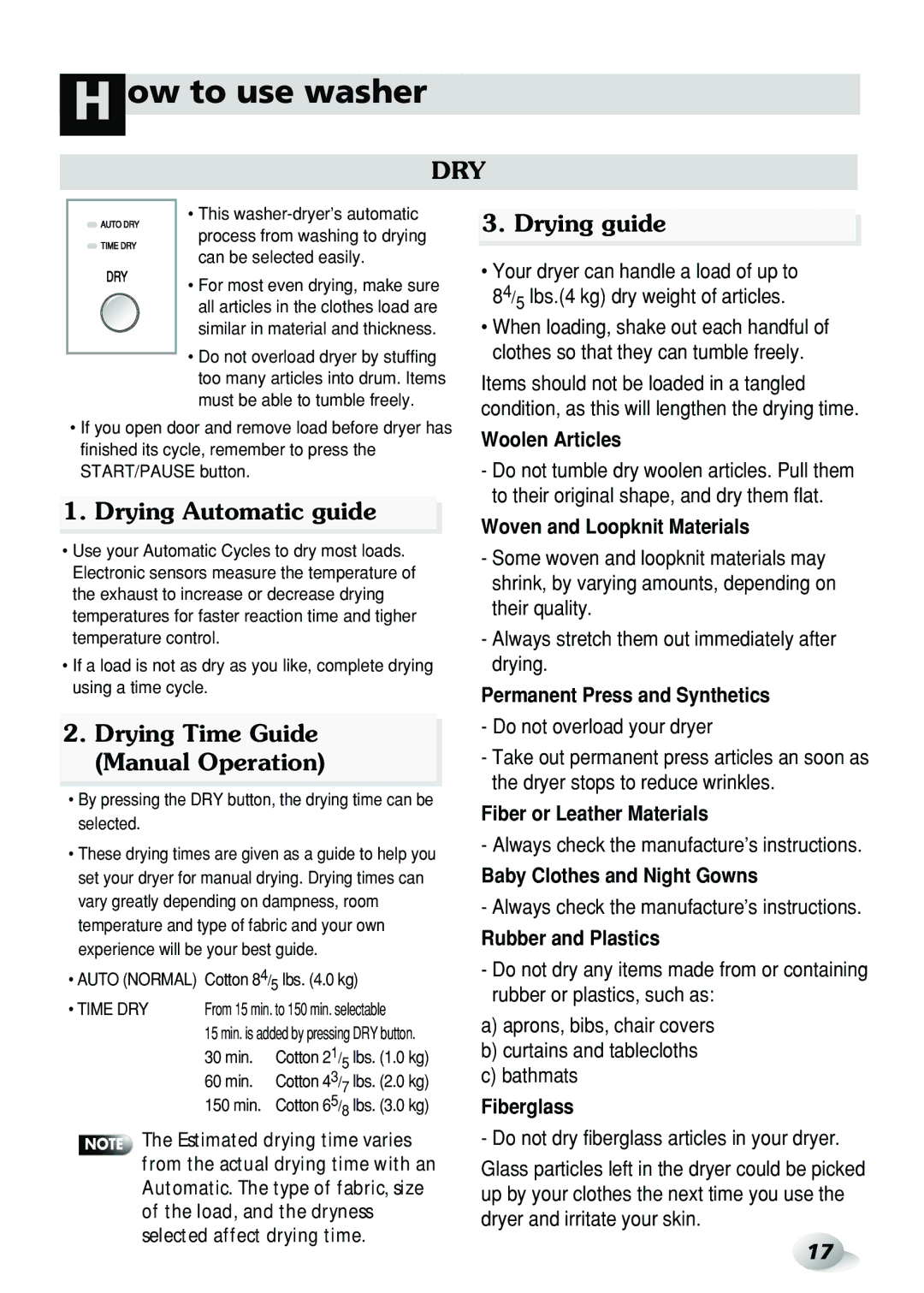
H ow to use washer
DRY
![]() AUTO DRY
AUTO DRY
![]() TIME DRY
TIME DRY
DRY
•This
•For most even drying, make sure all articles in the clothes load are similar in material and thickness.
•Do not overload dryer by stuffing too many articles into drum. Items must be able to tumble freely.
3.Drying guide
•Your dryer can handle a load of up to 84/5 lbs.(4 kg) dry weight of articles.
•When loading, shake out each handful of clothes so that they can tumble freely.
Items should not be loaded in a tangled condition, as this will lengthen the drying time.
•If you open door and remove load before dryer has finished its cycle, remember to press the START/PAUSE button.
1. Drying Automatic guide
Woolen Articles
-Do not tumble dry woolen articles. Pull them to their original shape, and dry them flat.
Woven and Loopknit Materials
•Use your Automatic Cycles to dry most loads. Electronic sensors measure the temperature of the exhaust to increase or decrease drying temperatures for faster reaction time and tigher temperature control.
•If a load is not as dry as you like, complete drying using a time cycle.
2.Drying Time Guide (Manual Operation)
•By pressing the DRY button, the drying time can be selected.
-Some woven and loopknit materials may shrink, by varying amounts, depending on their quality.
-Always stretch them out immediately after drying.
Permanent Press and Synthetics
-Do not overload your dryer
-Take out permanent press articles an soon as the dryer stops to reduce wrinkles.
Fiber or Leather Materials
•These drying times are given as a guide to help you set your dryer for manual drying. Drying times can vary greatly depending on dampness, room temperature and type of fabric and your own experience will be your best guide.
•AUTO (NORMAL) Cotton 84/5 lbs. (4.0 kg)
• TIME DRY | From 15 min. to 150 min. selectable | ||
| 15 min. is added by pressing DRY button. | ||
| 30 min. | Cotton 21/ | lbs. (1.0 kg) |
|
| 5 |
|
| 60 min. | Cotton 43/ | lbs. (2.0 kg) |
|
| 7 |
|
| 150 min. | Cotton 65/ | lbs. (3.0 kg) |
|
| 8 |
|
NOTE The Estimated drying time varies from the actual drying time with an Automatic. The type of fabric, size of the load, and the dryness selected affect drying time.
- Always check the manufacture’s instructions.
Baby Clothes and Night Gowns
- Always check the manufacture’s instructions.
Rubber and Plastics
-Do not dry any items made from or containing rubber or plastics, such as:
a)aprons, bibs, chair covers
b)curtains and tablecloths
c)bathmats
Fiberglass
- Do not dry fiberglass articles in your dryer.
Glass particles left in the dryer could be picked up by your clothes the next time you use the dryer and irritate your skin.
17
